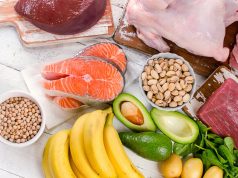In our fast-paced lives, maintaining optimal health often feels like a juggling act, where hydration plays a crucial role. Yet, many of us overlook the subtle, yet powerful influence of electrolytes in this delicate balance. Whether you’re an athlete pushing your limits, a busy professional, or simply striving for a healthier lifestyle, understanding how to balance electrolytes can be a game-changer. This article is your empathetic guide through the science and practicalities of electrolytes, offering you clear, actionable steps to enhance your hydration and overall well-being. Together, we’ll explore how these tiny, charged particles can make a significant difference in how you feel every day, empowering you to take charge of your health with confidence and ease.
Understanding the Role of Electrolytes in Your Body
Electrolytes are essential minerals that carry an electric charge, crucial for numerous bodily functions. They help regulate nerve and muscle function, hydrate the body, balance blood acidity and pressure, and help rebuild damaged tissues. Common electrolytes include sodium, potassium, calcium, bicarbonate, magnesium, chloride, and phosphate. To maintain optimal health, it’s important to ensure these minerals are balanced within your system.
Key Electrolytes and Their Functions:
- Sodium: Vital for maintaining fluid balance and nerve function.
- Potassium: Supports muscle function and heart health.
- Calcium: Essential for bone health and muscle contractions.
- Magnesium: Aids in muscle relaxation and nerve transmission.
| Electrolyte | Source | Function |
|---|---|---|
| Sodium | Table salt, processed foods | Fluid balance, nerve function |
| Potassium | Bananas, spinach | Muscle function, heart health |
| Calcium | Dairy products, leafy greens | Bone health, muscle contractions |
| Magnesium | Nuts, whole grains | Muscle relaxation, nerve transmission |

Recognizing the Signs of Electrolyte Imbalance
Understanding the subtle cues your body sends can make all the difference in maintaining optimal health. Electrolyte imbalance can sneak up on you, often masked by everyday discomforts. Here are some key indicators to watch out for:
- Muscle Cramps: These painful spasms can be an early warning sign. Electrolytes like potassium, calcium, and magnesium play a crucial role in muscle function.
- Fatigue and Lethargy: Feeling unusually tired? It could be your body’s way of telling you it’s out of balance.
- Dizziness and Headaches: These can be symptoms of dehydration, often linked to low sodium levels.
- Irregular Heartbeat: An imbalance, especially of potassium and calcium, can affect your heart rhythm.
It’s essential to listen to these signs and respond with appropriate dietary and lifestyle changes. Consider the following table for a quick guide on where to find these vital nutrients:
| Electrolyte | Sources |
|---|---|
| Sodium | Table salt, pickles, soups |
| Potassium | Bananas, sweet potatoes, spinach |
| Calcium | Dairy products, tofu, almonds |
| Magnesium | Nuts, seeds, whole grains |

Incorporating Electrolyte-rich Foods into Your Diet
- Bananas: Often hailed as the ultimate post-workout snack, bananas are packed with potassium, which is crucial for muscle function and preventing cramps. Toss them in your morning smoothie or slice them over your cereal for a potassium boost.
- Spinach: This leafy green is not only rich in iron but also a great source of magnesium, a mineral that supports nerve function and keeps your heart rhythm steady. Add it to salads, sandwiches, or blend it into a green juice.
- Avocados: Known for their creamy texture and healthy fats, avocados are also a fantastic source of potassium and magnesium. Spread it on toast or add it to your favorite salad for a nutrient-dense meal.
- Coconut Water: Naturally refreshing, coconut water is an excellent source of electrolytes, particularly potassium. It’s a perfect hydrating drink post-exercise or on a hot day.
| Food | Key Electrolyte | Benefits |
|---|---|---|
| Sweet Potatoes | Potassium | Supports cardiovascular health |
| Yogurt | Calcium | Strengthens bones and teeth |
| Almonds | Magnesium | Reduces muscle fatigue |
For those who love to experiment in the kitchen, try creating a homemade trail mix with nuts, seeds, and dried fruits, all of which are rich in various electrolytes. This snack is not only delicious but also a convenient way to maintain electrolyte balance throughout the day. Remember, the key is to enjoy these foods as part of a varied diet, ensuring you’re getting a comprehensive range of nutrients to support your overall well-being.

Crafting a Personalized Hydration Plan for Optimal Health
In order to maintain optimal health and performance, it’s crucial to understand how to balance electrolytes effectively. Electrolytes, including sodium, potassium, calcium, and magnesium, play a vital role in keeping your body hydrated and functioning efficiently. An imbalance can lead to issues such as dehydration, muscle cramps, or fatigue. Here’s how you can craft a personalized hydration plan that meets your unique needs.
- Assess Your Daily Activities: Start by evaluating your daily routine and activity level. High-intensity workouts or jobs that require physical labor increase your body’s demand for electrolytes.
- Monitor Your Diet: Incorporate foods rich in essential minerals. Bananas, spinach, nuts, and yogurt are excellent choices to naturally boost your electrolyte levels.
- Customize Your Fluid Intake: The amount of fluid you need can vary based on climate, activity level, and personal health conditions. A general guideline is to drink when you’re thirsty and adjust based on the color of your urine—pale yellow is ideal.
To better visualize how these electrolytes interact in your body, consider the following table as a quick reference:
| Electrolyte | Function | Sources |
|---|---|---|
| Sodium | Fluid balance, nerve function | Salt, pickles, broth |
| Potassium | Muscle function, heart rhythm | Bananas, potatoes, beans |
| Calcium | Bone health, muscle contraction | Dairy, leafy greens, almonds |
| Magnesium | Energy production, muscle relaxation | Nuts, seeds, whole grains |
Remember: Each person’s electrolyte needs are different, and factors like age, health status, and physical activity can significantly impact these needs. If you have specific health concerns or conditions, consider consulting with a healthcare professional to tailor your hydration plan accordingly.








































